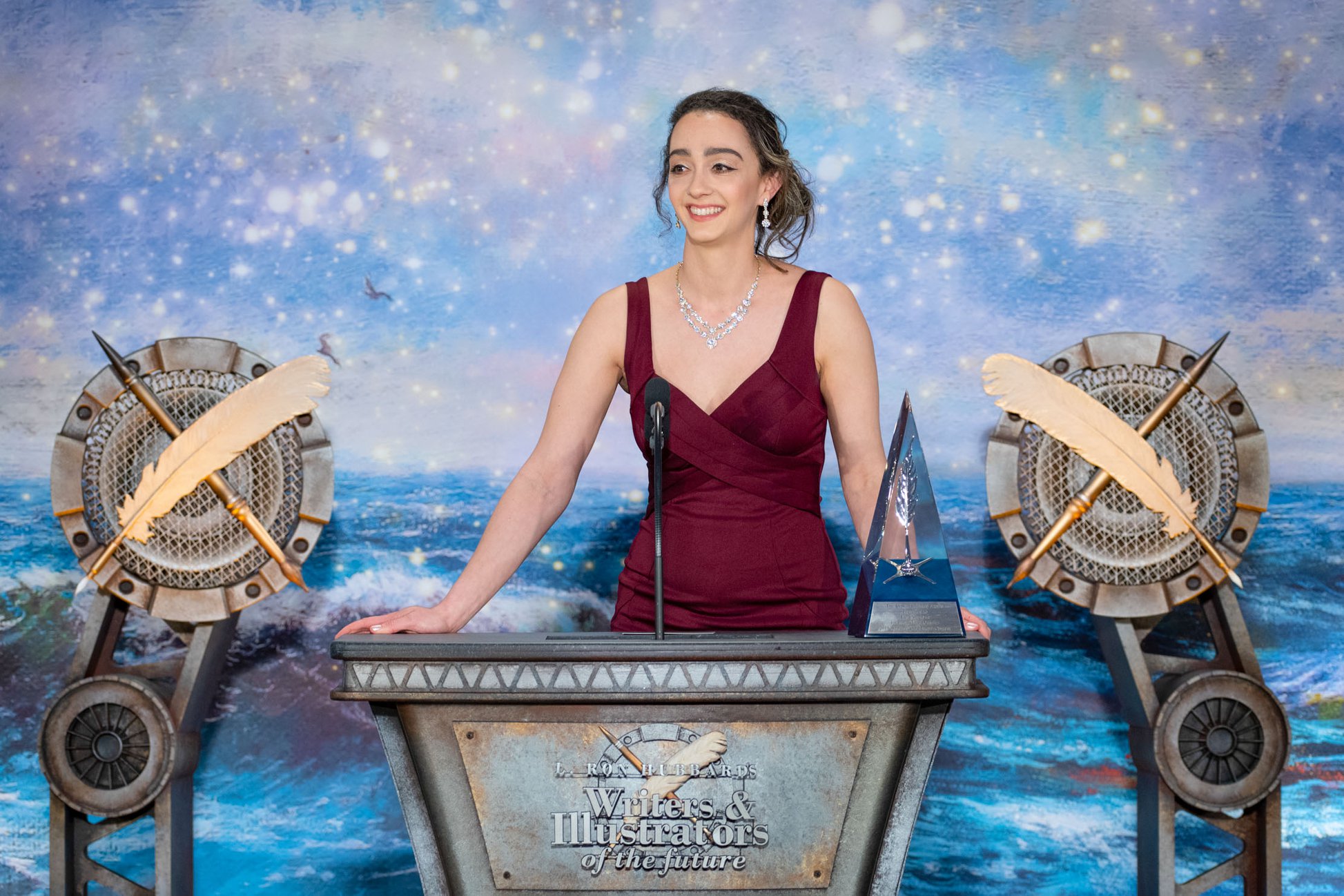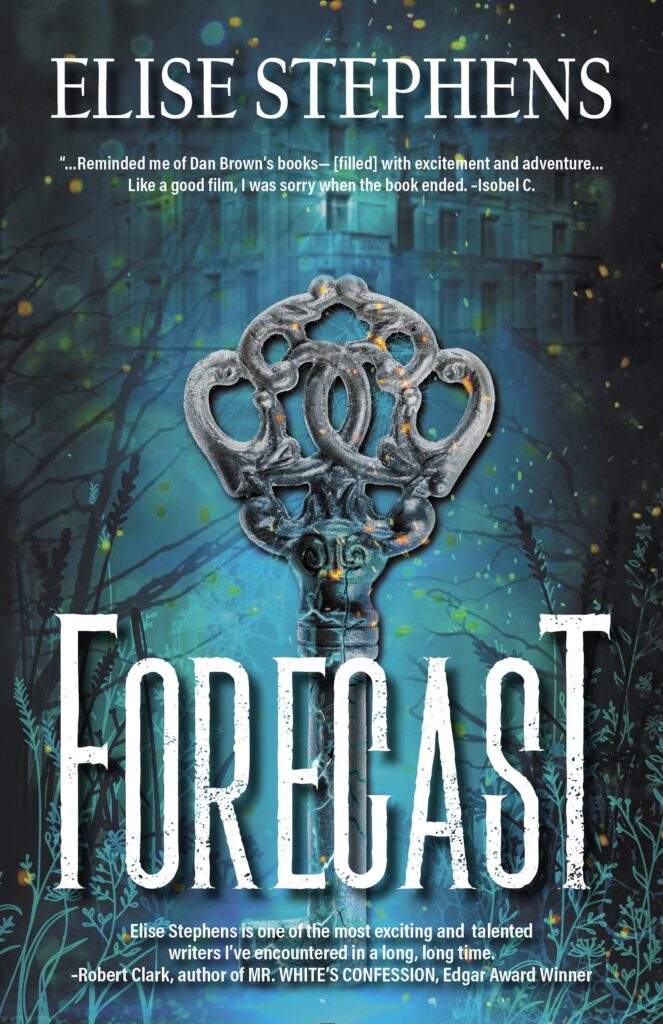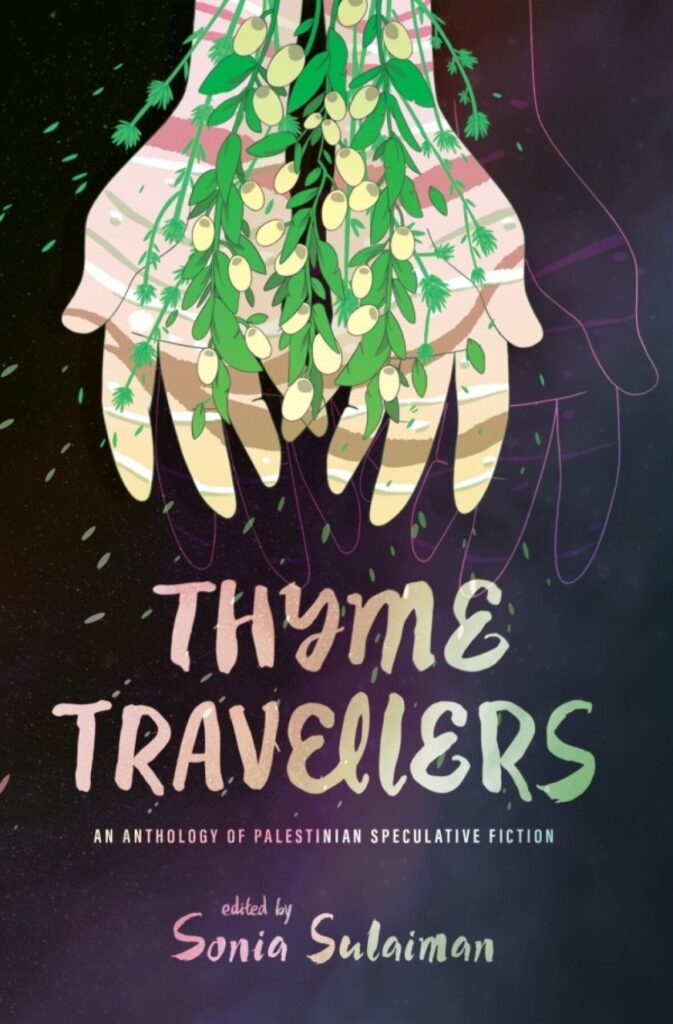
SF author Elise Stephens, a Seattle resident with a BA in English and Creative Writing from the University of Washington, passed with Distinction in 2007. I have known her since participating in Thyme Travellers (2024), an anthology of Palestinian speculative fiction. Her story, "Remembrance in Cerulean", full of unexpected twists is one of the best in the book.
By Emad Aysha
Squid-like aliens come to the earth’s seas, and the only thing that can save them from a confrontation is to help the protagonist regain his (exaggerated) childhood memories of his long-lost father. There is not a Palestinian in sight, but it’s ‘so’ Palestinian—time to pick her brains.
After reading your story “Common Speech,” I understood you are pioneering a new subgenre—anticolonial SF. Are there other writers in this field?
“On the subject of anticolonial SF, I think that many voices are emerging (though none readily come to mind) and contributing to it because so much is lost when one group forces another to assume new identities and effectively disappear, and SF offers a rich arena for exploring this.
The issues often float far from my mind when I write about a theme. At the same time, I am more aware of swimming deep in the curiosity of what we can learn and how we can heal when we allow ourselves to compassionately engage in challenging, painful, and even dangerous conversations with a person or people (in the broadest definition of those terms) who is or are so different from ourselves.”
Common Speech has sentient plants that need to embrace humans to tell them what to do with the horrendous bacteria killing the colonists. Carmen in “Inheritance” also learns to embrace potted plants after taking up her grandmother’s memory graft. Are you just fond of plants, or is this symbolism, green as the colour protest—even empires can’t stop the grass growing?
“If green is the colour of protest, it was certainly an unconscious choice on my part! Ha!
Yes, I am very fond of plants. I host many potted plants in my home, and I’ve told my husband that my imaginary dream house would possess a glass-walled conservatory room full of plants! Plants are resilient, quietly peaceful, and lovely but require care. They’re a way to bring the wilds of the outdoors into the “tamed” indoors of a home.
Although the aliens in “Common Speech” resemble plants to the human eye, this is only mere appearance and comparison. It’s a dangerous assumption to think that because something looks like another thing, they must be related (a mistake some colonists have made).
I think observations about a person’s character can be drawn from the way someone cares for a plant, making sure it has the sunlight and regular watering that it needs, taking aesthetic comfort in the beautiful forms the plant makes with its leaves and stalks, and ultimately creating a space where the plant can flourish.”
Carmen is 'so' grumpy, lifting her legs while her husband washes the dishes. We guys shy away from mundane (but delightful) details in our SF. You embrace them. Why?
“For me, the personal details in a story are where the characters and the life of the message reside. I tend to approach my storytelling from the intimate perspective of someone whose life is deeply affected by the events or concepts I’m working with.
In Carmen’s case, the inheritance from her grandmother stirs up the pain of her childhood, and I needed to enter the collision of these memories with her present-day depression and grief before I could be sure the story had articulated itself correctly.”

PALESTINIAN IN PRINT: It's good to see our authors entering the English language SFF mainstream. [Picture provided by Interviewee]
Now, your fantasy story “Two-Tone” is my personal favourite. Calligraphy involves magic, and word choice can save someone’s life—a woman’s reputation, in this case.
“Emotion-infused paintings—that idea was the seed that grew into this story! I have dabbled in several fields of art, including painting, and have often wished that people who look at my painted creations could feel exactly what I wanted them to feel.
Thus, the idea of magically putting the artist’s feelings into the painting was born so that the audience could feel those emotions when they looked at the artwork. We often communicate through the things we make, and visual art is a means of wordless communication. I named this magical painting Craft Lustration.
For “Two-Tone,” I set myself the puzzle of creating a painting with a hidden message concealed within its images--one that only someone trained in the art of lumastration could detect. I wanted a story of heartbreak and grief and, at the centre of it, an ambitious young man forced to understand that his artistic talent could be used toward his ends or toward helping others.
The story was the very first I wrote in my lumastration universe, and it prompted so many ideas and questions that I think it’s not surprising that it has inspired three other published stories in the same universe and a novel (which is currently on submission with my agent).”
Finally, where do your ancestors hail from? And what are the prospects for Palestinian speculative fiction?
“My father was born in Beirut, Lebanon, and his mother (my grandmother) was born in Jerusalem, Palestine. I was born in the United States after my father moved here, met and married my mother, and started a family. I carry my Palestinian heritage through my cultural bloodline but not through my birthplace.

BUMPER CROP: The aforementioned anthology. For a list of contributors (including yours truly) please follow this Columbia UP link.
I think the prospects for Palestinian SF are good and have been rising, particularly over the past few months and years. Strange Horizon’s Palestinian issue (March 2021) was the first time I’d encountered a market explicitly seeking Palestinian SFF authors (though likely not the first!), and more markets quickly followed. My short story “First Leaf” appeared in Fiyah’s Palestinian issue in December 2021 (and the elderly woman in that story was inspired by my Palestinian grandmother, Teita Sally!).
I have continued to see markets seeking out the voices of Palestinian authors, whether or not we are explicitly sharing something directly related to Palestine or carrying Palestine in our hearts through intrinsic messages and stories of hope, healing, and resilience.”






